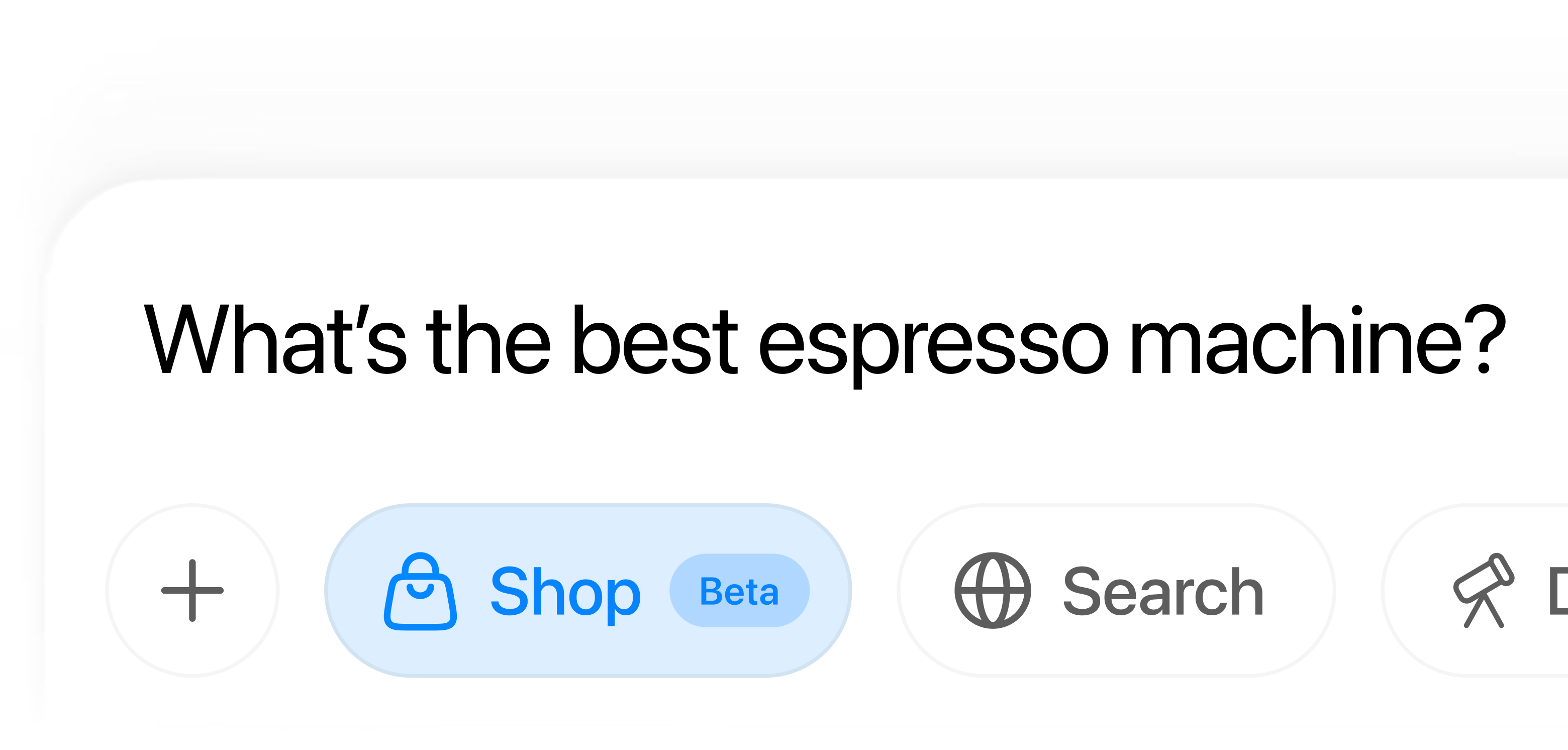Index
Other categories
01 May 2025
Is ChatGPT now an eCommerce? What changes for online sellers

Recently, ChatGPT has become part of the daily routine for millions of users, becoming an essential tool for obtaining quick and accurate answers. Millions of searches are conducted on this platform every day, now guiding daily choices and even purchases. Conversational search, which allows users to interact directly with an artificial intelligence, is radically changing the way people seek information and make purchasing decisions.
User expectations are constantly evolving: they no longer want to browse extensively across different websites but are looking for immediate and relevant answers. They want a shopping experience that is simple, fast, and personalized, directly within a conversation. With the introduction of new features, ChatGPT is no longer just a virtual assistant but a true shopping platform that meets these needs, simplifying the search and purchase of products.
Today, in fact, ChatGPT is evolving, with new features that not only provide answers but allow users to find, compare, and purchase products directly through the interface. Although these innovations are currently focused on B2C, they also have important implications for B2B companies, which must adapt to this change and prepare for a new way of doing ecommerce.
ChatGPT’s new shopping features
OpenAI has recently introduced new features in ChatGPT, and these are undoubtedly the most significant developments ever in the eCommerce space. Here is an overview of the main updates, based on official information provided by OpenAI:
New shopping features in ChatGPT
OpenAI has integrated advanced shopping features into ChatGPT, allowing users to explore and compare products directly within the platform. These features are available to all users, including those who are not registered, and cover categories such as electronics, fashion, beauty, and home goods.
Visual product details
When a user expresses an intention to purchase—for example, asking "best noise-cancelling headphones under €200"—ChatGPT provides relevant results, complete with images, prices, and descriptions. These details help users make more informed decisions without needing to browse multiple websites.
Product reviews and comparison
ChatGPT integrates product reviews and ratings from reliable sources such as Amazon and Reddit. It also offers the ability to compare different options based on features such as price, quality, and popularity, facilitating more conscious choices.
Direct purchase links
Although purchases are not completed directly within ChatGPT, the platform provides direct links to retailer websites, allowing users to complete the purchase easily and quickly.
No advertisements
Unlike other search engines, ChatGPT’s shopping results are not influenced by paid advertisements. Products are selected based on relevance and quality, offering a more authentic and less intrusive search experience.
Will ChatGPT change the shopping experience?
The introduction of these features represents a significant shift in how users interact with online content. It's no longer just about searching for a product or service, but about engaging directly with a platform that understands user needs and offers the best solutions without the need for lengthy navigation paths.
To answer the question in the title, ChatGPT is not yet a full-fledged ecommerce platform. Although it has introduced new features that allow users to search, compare, and obtain product details, it is not designed to complete payments directly. Rather, ChatGPT acts as an advanced search engine that guides users to external ecommerce sites where they can make purchases.
However, the introduction of these conversational search capabilities is radically changing the way users interact with online commerce. Ecommerce companies will need to adapt to these new expectations, optimizing their content to be easily accessible through AI interactions. Additionally, it's essential to tailor the shopping experience to user expectations to avoid an immediate drop in sales.
GEO: SEO for generative engines and the evolution of online searches
With the rise of generative search engines like ChatGPT, SEO is undergoing a fundamental transformation. In a traditional context, optimization focused mainly on algorithms indexing keywords. Now, with GEO (Generative SEO), the focus shifts to optimizing content so that it is easily understandable and usable by generative engines.
In a B2B context, companies must optimize their content not just for keywords but to provide complete, precise, and contextualized answers that AIs like ChatGPT can easily extract. This implies careful management of the product catalog and clear structuring of online information to ensure that products can be easily found during conversational interactions.
Looking toward the future of B2B ecommerce: how to adapt to artificial intelligence
The integration of artificial intelligence into the ecommerce world is just beginning, but the implications for companies are already clear. Conversational platforms are changing the way consumers search for and purchase products. B2B companies that want to remain competitive must face this evolution and adopt software solutions capable of managing the change, optimizing visibility, order management, and user experience.
Being ready for the future of ecommerce means adapting to new search paradigms, simplifying the purchase process, and ensuring that products are easy to find—even in a conversational search context powered by artificial intelligence.
How ecommerce evolution impacts B2B
In the B2B world, ecommerce dynamics are often more complex than in B2C. Searching for a specific product can require time and attention to detail, and the purchase process is generally longer. With ChatGPT entering the shopping space, things could change. AI now makes it possible to simplify and accelerate this process by offering quick and accurate answers directly within the conversation with the virtual assistant.
However, for B2B companies, evolution does not stop at product search: it also means adapting sales strategies and online content management. Companies must be ready to interact with a clientele that expects increasingly immediate, personalized responses—especially in real time.
How to respond to the challenges of conversational ecommerce
With the evolution of artificial intelligence and conversational search, companies must prepare to manage changes in user behavior. Optimizing product visibility for intelligent search platforms is essential to stay competitive. A well-structured and modular ecommerce software can simplify catalog management, improve operational efficiency, and automate sales flows, making interaction with customers more fluid and immediate.
In a context of increasing competition and technological evolution, B2B software that integrates easily with new generative search technologies can be a key resource to keep up with market expectations.
Stay Informed, Stay Ahead
Dive into Rewix newsletter for the latest B2B insights and trends. Don't miss out!
Sign Up Rewix Newsletter


